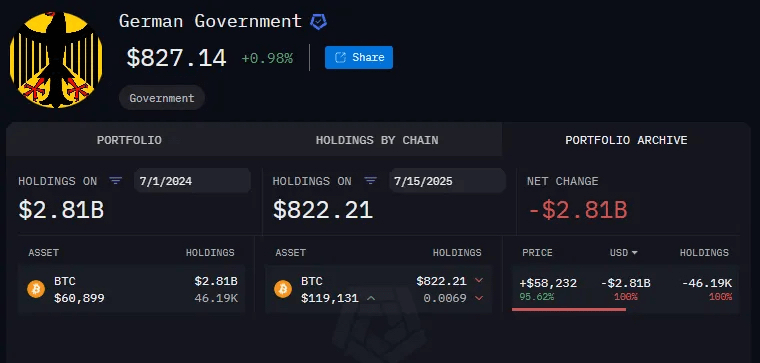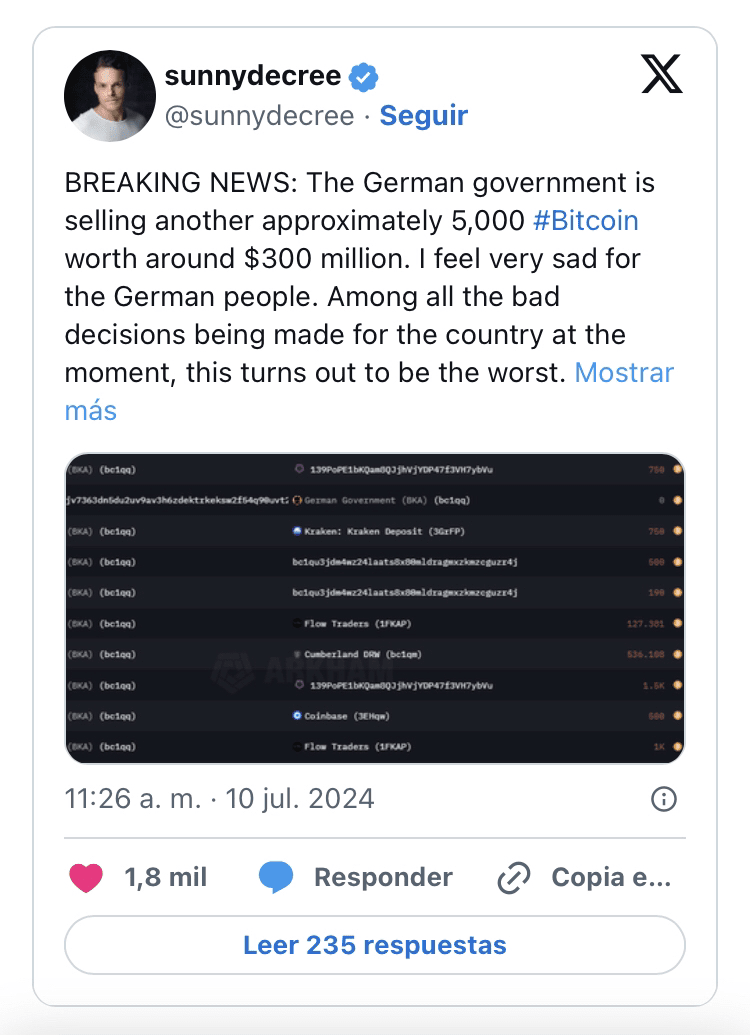A year ago, Germany sold 50,000 Bitcoins, completely liquidating its reserves. Meanwhile, the price of Bitcoin has doubled, and a similar sale today would yield over $6.64 billion.
This example could serve as a useful warning for leaders around the world. Even if the government is determined to liquidate its holdings, some delay would have brought Germany much larger returns.
Germany lost billions
From time to time, we find different governments around the world holding large amounts of Bitcoin. This usually happens after confiscating the assets of criminals, but there are other ways as well.
Last year, Germany confiscated 50,000 Bitcoins in an anti-hacking operation, but made a controversial decision to sell all of them by July 2024. About a year later, this decision seemed utterly unwise. Germany sold this currency for $3.13 billion, but its price has risen significantly since then.

Compared to last July, the value of Bitcoin has effectively doubled. If the state had 50,000 Bitcoins for sale today, it would have made a profit of over $6.64 billion. In contrast, its wallet only contains 0.0069 Bitcoin, collected from anonymous users who donated small amounts.
The sale seems like a more obvious mistake, as Germany is not hostile to cryptocurrencies these days. The country is currently issuing MiCA licenses more than any other country in the European Union, demonstrating the flourishing of the local industry. However, the country has squandered a massive fortune. So what lessons can the world learn from this?

Overall, 2024 has been a bad year for governments that abandoned cryptocurrencies. Several countries, like El Salvador and Bhutan, have deliberately hoarded Bitcoin, while Germany tried to dispose of it. Under President Biden, the United States also began liquidating its holdings.
Between these two countries and Ukraine, which also fully liquidated, state reserves dropped by 12%. Nonetheless, even Biden's partial liquidation was impactful, as it motivated President Trump to seek the creation of a Bitcoin reserve.
The other two major bondholders, China and the United Kingdom, did not acquire or dispose of any assets last year. And although these two countries do not have an official reserve, the value of their deposited assets has increased significantly.
All of this means that governments around the world need to take Germany's decision into account if they confiscate large amounts of Bitcoin. Even if the political establishment is determined to liquidate its assets, it may be wise to postpone that for as long as possible.
If the German government had followed the most common advice for every Bitcoin supporter, which is HODL, its economy would have made billions of dollars and possibly more in the future.